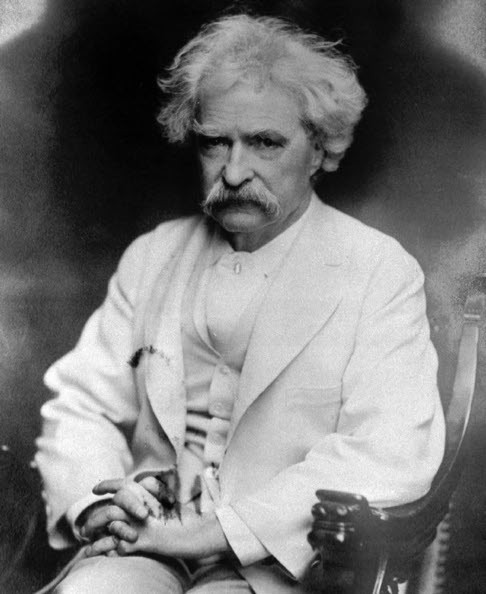
Five of the best tales of non-Chinese censorship

It is probable that if there was advantage to be had from the sun rising in the evening, the Chinese government would have it so. State media would be full of reports of supper-time breakfasting in Jiangxi province and 1am assemblies of elderly citizens in Shanghai parks.
In the field of economics, presently, China is learning that so long as it permits money to flow freely in and out of the country it cannot sit on interest rates and also expect the yuan’s exchange rate value to hold up. But still it pretends all things are possible; to admit otherwise would be to accept some degree of impotence.
The point, I think, is that China likes control. And nowhere is this more obvious in what it suffers to be said or written about itself. Chinese authorities prohibit the spread of information and accurate reporting about disasters and their own efforts to cope with them; the country’s history under Communism is only sketchily taught in schools; internet users are required to register themselves, the better to “protect their own privacy”; and journalists are never done being locked up. Meanwhile, the Chinese State Administration of Radio, Film and Television (SARFT) not only acts as a censor for domestic media but increasingly for Hollywood too.
As its transgressors in modern China will attest, censorship is no laughing matter. And yet, and yet: occasionally the whole business just becomes so utterly preposterous and cretinous that it cannot help but add incidentally to the gaiety – in the old sense – of nations to recount it.
In its wisdom the state broadcaster, China Central Television, earlier this month decided to pixelate the face of Hong Kong actor Wong Hei during a popular Sunday evening broadcast. Wong’s crime was having shared a link on social media to a news report about a book suggesting Zhou Enlai, premier of the People’s Republic from 1949 until 1976, was gay. The risk to viewers of beholding his chiseled visage was, you will appreciate, marked.
Donkey-brained, or simply bizarre, acts of censorship are by no means exclusive to China, of course. Here are some more of my favourite recent examples of half-witted censorship from around the world.
Russia
1. Besides incinerating vast piles of European cheese, in retaliation against Western sanctions imposed over their misdemeanours in Ukraine, the Russians have been busy banning books. In Yekaterinburg, perhaps eager to take the lead and impress the bosses in Moscow, officials instructed their city’s libraries in August to “prevent access” to anything written by Antony Beevor or the late John Keegan, two British historians whose work is “imbued with the propagandistic stereotypes of Nazism”, chronicling as it does raping and looting by Red Army soldiers across Eastern Europe during their epic defeat of the Wehrmacht. The British eggheads’ source material? Russia’s own archives. Meanwhile, a tit-for-tat “information war” between Russia and Ukraine has prompted all manner of proscriptions on both sides. For its part, Ukraine has blacklisted Russia’s adopted son, the French tax exile Gerard Depardieu, labeling him a threat to national security.

USA
2. In December, a school in Philadelphia removed Mark Twain’s The Adventures of Huckleberry Finn from the curriculum owing to its use of a word used commonly in the 1880s: “nigger”. First banned in 1885, in Massachusetts, for being “trash and suitable only for the slums”, the novel was not deemed sufficiently “inclusive” by the school’s principal, Art Hall, who said: “I do not believe that we’re censoring. I really do believe that this is an opportunity for the school to step forward and listen to the students.” One supposes it would be too much to ask teachers in this day and age to educate students as to the meaning of context or introduce them to anything intellectually discomforting. Better to let them set the parameters of literary criticism themselves. Meanwhile, also in America, the University of Wisconsin’s Inclusive Excellence Center last year added the phrase “politically correct” to its list of censored terms. PC, it said, had become a “dismissive” label used to imply people were attempting to “police language”. Presumably the word “irony” got the same treatment a while back.

Iran
3. According to a producer of Iranian TV commercials quoted a couple of years ago on Iranwire, a blog run by “diaspora” journalists, Iran’s shadowy committee of government censors once embargoed footage, intended to promote a tomato paste, of a chicken in a pot. The bird’s thighs were deemed to be “sexually arousing”. The producer added: “There was a time when women could not appear in commercials, back in the 1990s. If you take a look at the commercials made at that time you would see two men appearing in soap or shampoo commercials. You would think that the commercials were pitched entirely to a gay audience, or for a gay television network, because virtually every ad involved a male couple smiling or sharing some aspect of household life.”
United Kingdom
4. In Britain, where the National Health Service does not used the word “obese” in its National Child Measurement Programme for fear of “stigmatizing the child”, but where children are fatter than ever due to lack of physical activity, it often seems the nation’s energies are mostly spent on being offended and gagging people. Germaine Greer - the Australian-born writer whose shoulder has been to the wheel of feminist liberation for almost half a century - suddenly finds herself the target of feminist students concerned to “no platform” her. From having been a paragon of radical chic, her views on gender reassignment – she says the urge comes from a form of “body dysmorphia” – now put her in the bad corner with Genghis Khan, Josef Mengele, Bill Cosby et al. Branded “a disgrace to feminism and society”, her sin is to believe that those of us given penises are men.
Islamic State
5. For all the organisation’s murderous depravity, in reading its edicts one is just as often struck by the philistinism of ISIS. There’s almost, at times, a Spode-ish quality about them (see Spode, Roderick, the British fascist leader in the Jeeves novels). Pigeon-breeding, for instance, is forbidden, because “the sight of the birds’ genitals as they fly overhead is offensive to Islam.” Other things which were outlawed in ISIS-controlled areas in 2015 included: songs and music; the study of maths, evolution, chemistry, music, history, the arts, psychology, philosophy and social studies; participation in sports; women showing any of themselves in public, including their hands; smoking; shaving; and skinny jeans.